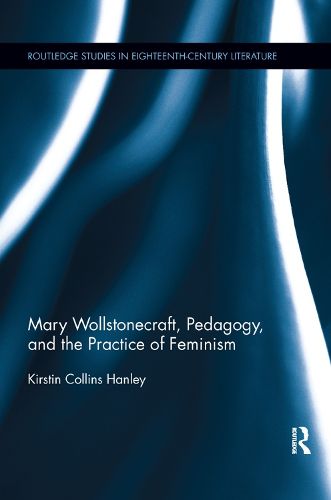Readings Newsletter
Become a Readings Member to make your shopping experience even easier.
Sign in or sign up for free!
You’re not far away from qualifying for FREE standard shipping within Australia
You’ve qualified for FREE standard shipping within Australia
The cart is loading…






This study examines Mary Wollstonecraft-generally recognized as the founder of the early feminist movement-by shedding light on her contributions to eighteenth-century instructional literature, and feminist pedagogy in particular. While contemporary scholars have extensively theorized Wollstonecraft’s philosophical and polemic work, little attention has been given to her understanding and representation of feminist practice, most clearly exemplified in her instructional writing. This study makes a significant contribution to the fields of both eighteenth-century and Romantic Era literature by looking at how early feminism influenced didactic traditions from the late-eighteenth century to today. Hanley argues that Wollstonecraft constructs a paradigm of feminist pedagogy both in the texts’ representations of teaching and learning, and her own authorial approach in re-appropriating earlier texts and textual traditions. Wollstonecraft’s appropriations of Locke, Rousseau, and other educationists allow her to develop reading and writing pedagogies that promote critical thinking and gesture toward contemporary composition theories and practices. Hanley underscores the significance of Wollstonecraft as teacher and mentor by revisiting texts that are generally assigned a short space in the context of a larger discussion about her life and/or writing, re-presenting her works of instruction as meaningful both in their revisionist approaches to tradition and their normative didactic features.
$9.00 standard shipping within Australia
FREE standard shipping within Australia for orders over $100.00
Express & International shipping calculated at checkout
This study examines Mary Wollstonecraft-generally recognized as the founder of the early feminist movement-by shedding light on her contributions to eighteenth-century instructional literature, and feminist pedagogy in particular. While contemporary scholars have extensively theorized Wollstonecraft’s philosophical and polemic work, little attention has been given to her understanding and representation of feminist practice, most clearly exemplified in her instructional writing. This study makes a significant contribution to the fields of both eighteenth-century and Romantic Era literature by looking at how early feminism influenced didactic traditions from the late-eighteenth century to today. Hanley argues that Wollstonecraft constructs a paradigm of feminist pedagogy both in the texts’ representations of teaching and learning, and her own authorial approach in re-appropriating earlier texts and textual traditions. Wollstonecraft’s appropriations of Locke, Rousseau, and other educationists allow her to develop reading and writing pedagogies that promote critical thinking and gesture toward contemporary composition theories and practices. Hanley underscores the significance of Wollstonecraft as teacher and mentor by revisiting texts that are generally assigned a short space in the context of a larger discussion about her life and/or writing, re-presenting her works of instruction as meaningful both in their revisionist approaches to tradition and their normative didactic features.